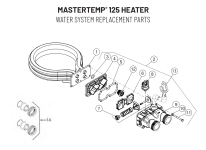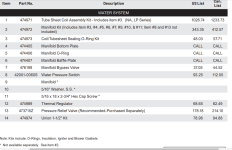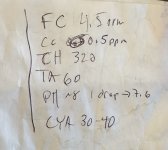If it was full of water, it would be leaking out.
Hard to tell for sure why the bolts corroded.
I would replace the bolts and periodically remove a bottom bolt to see if the heater is leaking.
Do not run the heater with any bolts missing.
Hard to tell for sure why the bolts corroded.
I would replace the bolts and periodically remove a bottom bolt to see if the heater is leaking.
Do not run the heater with any bolts missing.








